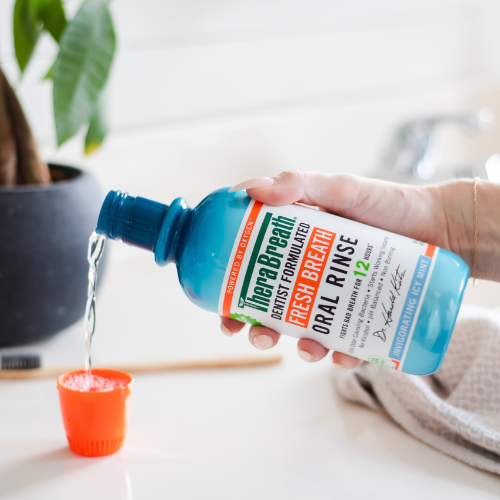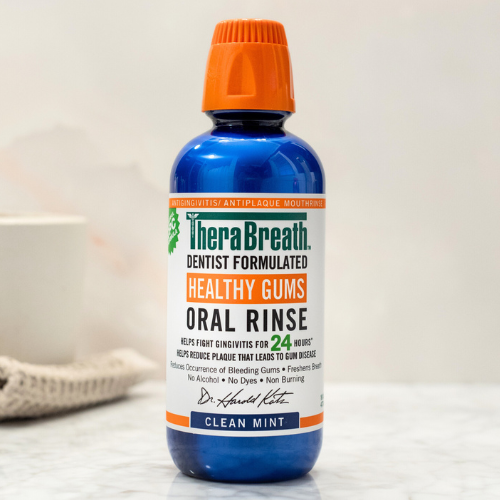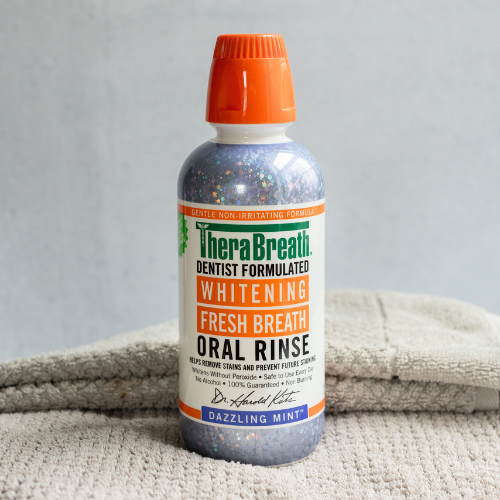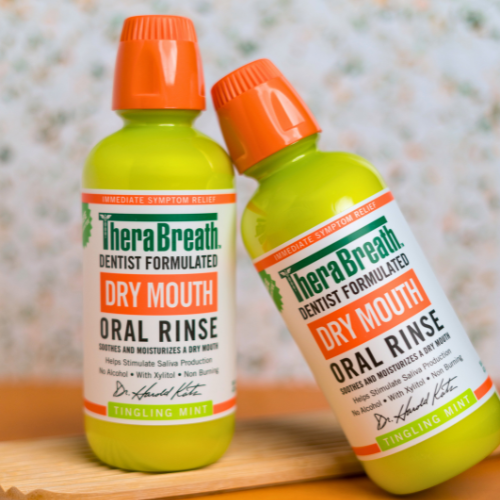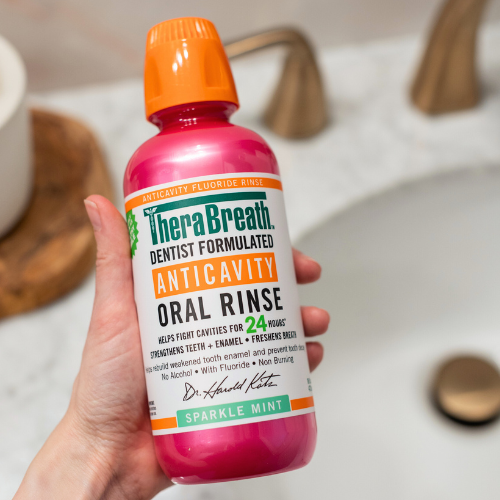Oral Health for Kids
Share
Dental Caries, also known as Tooth Decay is the number one chronic disease affecting children in the United States today. Dental caries, gingivitis and other dental diseases in children are entirely preventable. This article provides an outline on how to select the right products for children and prevent oral health issues.
In children as in adults, good oral health begins with a regular oral hygiene routine. It's never too early to start. You can clean your baby's mouth with a soft, clean cloth even before his or her baby teeth come in. Yes, your baby will fuss at first but after two or three times, he'll get used to it. Be careful not to stick the cloth far enough into your baby's mouth to elicit a gag reflex. Once her baby teeth sprout, you can switch to a soft toothbrush. Breast milk doesn't promote tooth decay but other liquids may, so never let your baby fall asleep with a bottle in his mouth.
Early Oral Hygiene for Children
As soon as your child is old enough to hold a toothbrush, begin teaching him the essentials of brushing his own teeth. Begin using toothpaste only when your child is old enough to understand it's not supposed to be swallowed. A pea-sized dollop should suffice. Children are generally old enough to begin brushing their teeth unsupervised around age five.
Contrary to popular opinion, children aren't born with an insatiable appetite for sugar. In cultures where sweets aren't given out routinely as rewards, neither children nor adults seem to crave them. Avoid using candy as a treat and your child won't make the automatic association between sweets and happiness. You can maintain your child's oral health by making sure he eats a nutritious diet that's low in sugar, and practices regular oral hygiene, using products that are safe and effective.
What's in the Oral Health Care Products You use?
There are many oral health care products on the market today, ranging from toothpastes to mouth rinses. Let's take a look at some of their more common ingredients and how they can undermine your child's oral health.
Alcohol: Most mouthwashes contain high concentrations of alcohol because of alcohol's well-known antimicrobial effects. At one time it was thought bacteria inside the human mouth were responsible for bad breath. Today we know it isn't the bacteria, but rather the volatile sulfur compounds they excrete that produce halitosis. Alcohol dries out your child's mouth, which contributes to the formation of bad breath since the moisture that normally washes away foul-smelling bacterial residues is no longer available. Dry mouth also increases the incidence of pediatric dental problems like cavities and gum disease.
Sodium Lauryl Sulfate: Sodium lauryl sulfate (SLS) is added to many commercial toothpastes in order to make them foam more when used. Toothpastes are not the only commercial products that use SLS for this purpose. SLS is also commonly used in soaps, laundry detergents, stain removers and fabric glues. Clinical studies link the SLS in toothpaste to canker sores and oral ulcers. Canker sores impact your child's ability to eat and drink. Children who go without drinking become clinically dehydrated in far less time than adults.
Saccharin: Many toothpastes use saccharin as a sweetener. It was once a common additive in diet soft drinks and other low calorie foods, but fell out of favor when clinical studies discovered a link between saccharin and bladder cancer. The American Medical Association cautions parents against giving children products containing saccharin.
Benzalkonium Chloride: Benzalkonium Chloride is an antibacterial preservative that's used in a variety of different products including Lysol, floor cleaners and eye drops. Scientific research suggests that 10 percent of the population may be allergic to Benzalkonium Chloride and develop severe dermatitis as a result of contact. Additionally, a growing body of evidence links Benzalkonium Chloride to the dramatic increase in childhood asthma, which affects over 6.3 American children.
What Oral Health Products are Safe for Children?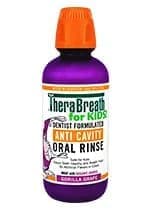
Oral health products that contain ingredients like alcohol, sodium lauryl sulfate, saccharin or Benzalkonium Chloride are not safe for your children or for you either, for that matter. The blood vessels in the mouth, particularly those under the tongue, readily absorb chemicals into the bloodstream even when these substances are not actively swallowed. Additionally, children metabolize many chemicals far differently than adults do because their organs are still developing, so these chemicals may have a far more devastating effect on your child than they do on you.
Fortunately, there are toothpastes, mouth rinses and other oral health care products available that contain safe ingredients and are alcohol free. These products are not only as effective in promoting effective oral hygiene, they are usually more effective. TheraBreath® has a complete line of products that have been developed with safe and effective natural ingredients including TheraBreath for Kids! AntiCavity Oral Rinse which tastes great, fights cavities and is free of artificial colors and flavors!
Ingredients like sodium fluoride are clinically proven to fight tooth decay. Natural ingredients like whole leaf aloe vera are collagen enhancers that actively work to strengthen gums and prevent gingivitis. If possible, try to find a tooth brushing agent that's a gel rather than a paste. Gels have molecular properties that make them far more effective in promoting healthy gums than ordinary toothpastes. Look for products that use natural oils like peppermint for flavoring, and rely upon sweeteners like xylitol, an all-natural substance extracted from the fibers of fruits and berries. You'll find many products with safe, natural ingredients in the TheraBreath® oral care system developed by Dr. Harold Katz.
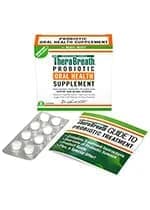 And now a Word about Chronic Ear Infections
And now a Word about Chronic Ear Infections
Children are more susceptible than adults to ear infections. That's because children's Eustachian tubes are smaller and oriented more laterally than they are in adults. It may seem strange to think of your child's ear infections as a symptom of ineffective oral hygiene, but in fact it could be. Bacteria migrate from the tongue and gums into the back of the throat where they're trapped in the adenoids, giving rise to chronic infections that then pass into the ears.
TheraBreath® offers a line of probiotic products that are specifically engineered to eliminate the microorganisms responsible for gum disease, sore throats and ear aches. TheraBreath® Multi Symptom Probiotics only need to be used for a single week, and repeated thereafter at two to three month intervals. Probiotics are also available as a chewing gum, making them easy to use while on-the-go.
Probiotics are a proactive way of preventing the agony your child feels with repeated ear infections. Scientific studies show that they really work.
